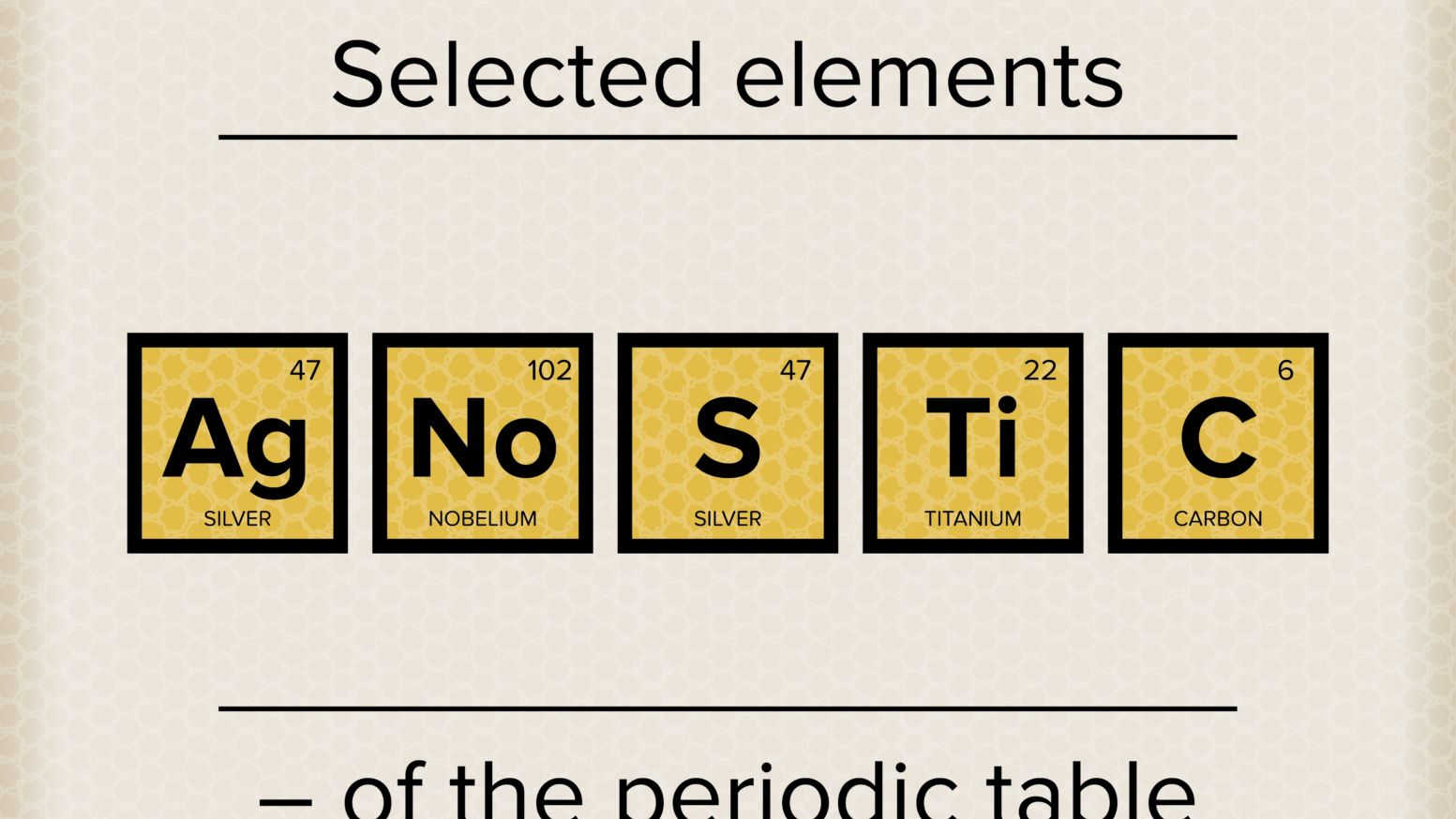Every time I start a new Bible study with someone, I ask them two questions: 1. Do you believe God exists? And 2. Is the Bible from God? If they answer yes to both of these questions, we take out our Bibles and begin a study of the differences between the Old Testament and the New Testament. But, what do you do if they don’t answer yes to both of these questions?
Lately, it has been very common for non-Christians I am studying with to answer no to both of these questions and to follow up with, “I’m an agnostic.” While this can be quite a curveball for a study, I have found that it is usually the beginning of a great conversation and learning experience. In this blog, I want to share with you my strategy for studying with agnostics. It consists of asking four questions:
Question 1: What do you mean, “agnostic?”
This open-ended question is amazingly powerful! We all like to talk about ourselves – especially what we believe and why we believe it. People who come to me for studies and are agnostic usually find this question exciting and engaging. They want to talk about what it means to them to be agnostic.
There are two things I look for when I ask this question:
- Are they using the word correctly? (differentiating it from Atheist or confused theist, etc.)
- What problems, questions, experiences are leading them to profess agnosticism.
In my experiences, agnostics usually understand what they mean by their chosen title. They usually really don’t know if God exists or not. They also seem to be passionate about their conclusion. They will often express frustration because they want certainty but don’t have it. Or, they may express anger stemming from an inability to believe the Bible is the word of God. They may say something like, “It’s just a book written by men just like every other book! I wish I could believe, but I just can’t.” Whatever they say, usually by the time they are done answering this question, you know what they mean when they say “agnostic.” With this clarity, you can both move forward in the conversation.
Question 2: What is something you know and how do you know it?
In my experience, it is almost never the case that an agnostic holds to a pure agnosticism or philosophical skepticism in which they just don’t know that they can know anything. Usually, the agnostics I study with believe they know some truths. I like to find out what they know that they know. They may give an example from the physical world, like what goes up must come down. Whatever it is, I follow up by asking how they know that. Here it is helpful to be able to identify specific methods that the agnostic uses for arriving at knowledge. Usually, they will cite things like experience/observation (induction), experiments (deduction), testimony of experts, etc. My appeal in response is if these same methods of knowing could be applied to religious knowledge would you be interested. Usually, an agnostic will say yes.
Question 3: What is Truth?
In our postmodern world, this question is particularly important. If the agnostic with whom I am studying does not believe that we can know truth in moral or spiritual matters, we won’t be able to accomplish much in our study. So, I like to find out if the agnostic with whom I am studying believes there are any absolute truths. In my experiences, agnostics will often cite truths about the physical world as knowable and absolute. In response to this, I like to ask whether these are the only kinds of truths that we can know and that are absolute? I probe further by asking whether any moral truths are absolute (explaining that they apply to all people in all places at all times). Again, usually, the agnostic with whom I am studying will settle on some principle like hurting others is wrong and will affirm that it is absolute. I like to conclude the discussion of this question by asking the agnostic if they would be interested in knowing how physical truths and moral truths could be used to support a confident belief in God.
Question 4: Are you frustrated with agnosticism?
The truth is, "I don't know" is not the same as "I don't care." Though some agnostics are quite comfortable not knowing, many are not. Many want to know with certainty whether God exists or not but simply haven’t found the way to resolve the question. These agnostics are usually honest, ethical, and thoughtful. When asked if they are frustrated, they happily and quickly answer, “Yeah!” This is when I respond, “Great! Let’s get together next week and look more closely at the issue of knowledge.”
I hope these ideas will help you meet the agnostic where they are, so the Gospel can change who they are.
